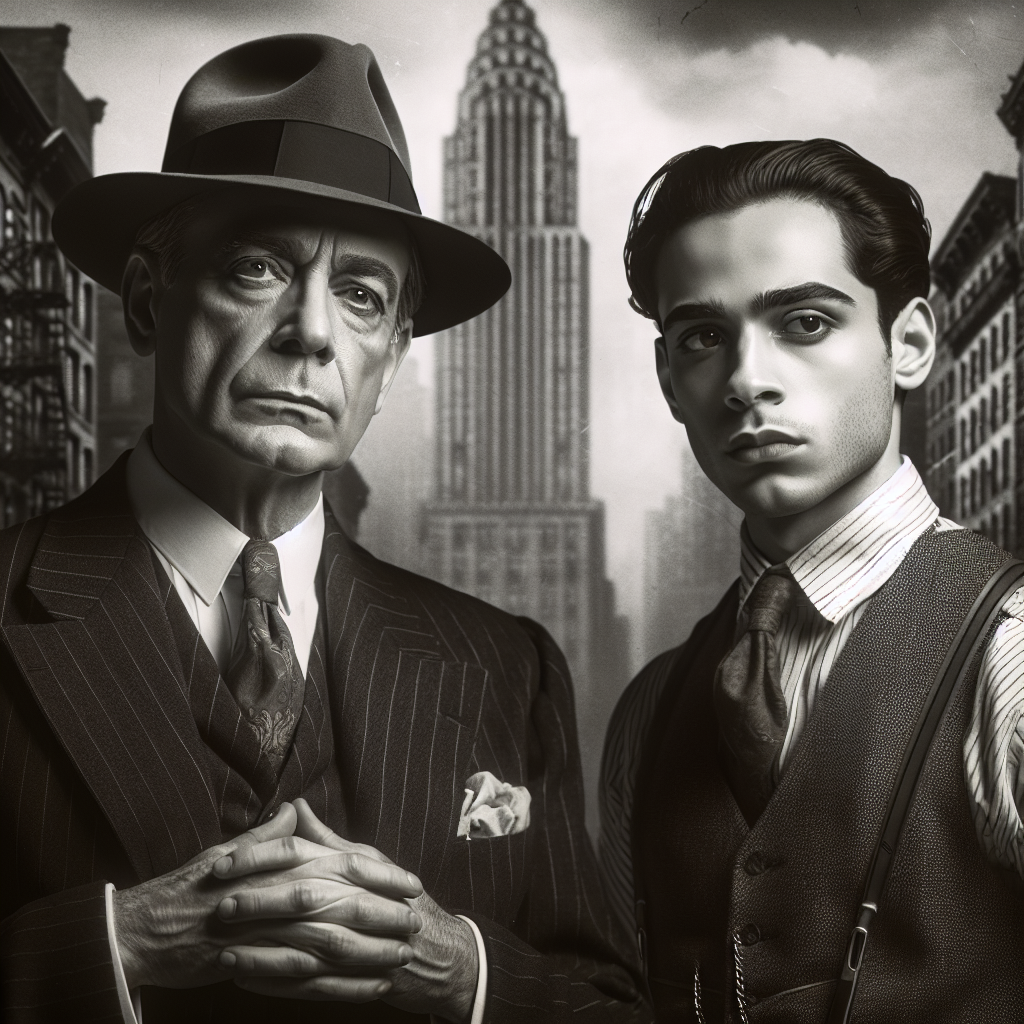Discover the Underworld: Unraveling the Classic Crime Drama of Little Caesar (1931)
In the annals of cinema history, few films have left an indelible mark as profoundly as "Little Caesar" (1931). This film heralded the advent of the gangster genre, setting a high bar for subsequent entries. Directed by Mervyn LeRoy and featuring a powerhouse performance by Edward G. Robinson, "Little Caesar" remains a staple of its kind, offering not just a gripping narrative but a window into the burgeoning urban tensions and complexities of the early 20th century.
The Emergence of a Genre
"Little Caesar" arrived during a period when America was reeling from the Great Depression. The crime drama genre provided a form of escapism while simultaneously reflecting the harsh realities of economic hardship and rapid urbanization. This film, based on the novel by W.R. Burnett, is critically significant as it carved out the blueprint for gangster movies with its archetypal characters, moral dilemmas, and narrative style.
While "Little Caesar" didn’t invent the crime genre, it was among the first to shape the public’s perception of an antihero in the form of Rico Bandello, played by Robinson. His portrayal was magnetic and chilling, offering a study in ambition and the inevitable fall, a motif that would dominate the genre for decades.
Character Arcs and Themes
Central to the film is the character arc of Caesar Enrico "Rico" Bandello, who evolves from a small-time crook to a notorious crime lord, embodying the quintessential rise-and-fall motif. Rico’s arc is emblematic of unchecked ambition and the corruptive nature of power. His character is driven primarily by an insatiable desire for control, respect, and dominance, leading him down a path of moral decay and ultimate destruction.
Rico’s famous line, "Mother of mercy, is this the end of Rico?" captures his disbelief and sudden confrontation with mortality, accentuating the futility of his criminal empire. This narrative choice marked a departure from earlier films that often punished criminals off-screen, stressing a moral underpinning to Rico’s downfall.
Opposite Rico is Joe Massara, portrayed by Douglas Fairbanks Jr., whose arc provides a counter-narrative of redemption and the pursuit of a more conventional and respectable life. Joe represents the possibility of escape from a life of crime, contrasting Rico’s all-consuming ambition.
The film masterfully explores themes of ambition, identity, and moral conflict, examining the personal costs of crime and the fragile nature of power.
Cinematic Techniques
Director Mervyn LeRoy utilized a series of innovative cinematic techniques that added depth and intensity to "Little Caesar." Notable is the film’s use of low-key lighting and stark shadows, which creates a tense and foreboding atmosphere, characteristic of the film noir style that would gain popularity in later decades. This visual style complements the film’s themes, painting a stark and gritty portrait of the underworld.
Close-ups are used effectively to capture the intensity of Rico’s expressions, allowing viewers to glimpse the internal tumult masked by his outward bravado. This technique ensures that Robinson’s mesmerizing performance remains the focal point, grounding the film in a deeply personal narrative despite its sprawling urban backdrop.
Cultural and Historical Context
"Little Caesar" reflects the cultural and social tensions of its time, capturing the angst and unrest of a society grappling with rapid industrialization, prohibition, and economic despair. The film’s depiction of organized crime resonates with contemporary audiences familiar with the infamous exploits of real-life figures like Al Capone. Through its narrative, "Little Caesar" articulates the allure and danger of a lifestyle that tempted many during an era of scarce legitimate opportunity.
The film’s representation of the Italian-American experience, although criticized for perpetuating stereotypes, also invites discussions about ethnicity and identity within the American melting pot. Rico’s drive can be read as a skewed pursuit of the American Dream, offering a critique of the capitalist ethos where success is often pursued through morally dubious means.
Legacy and Influence
"Little Caesar" not only solidified the gangster genre but also influenced a vast array of subsequent films and television series. Its thematic exploration of crime and power dynamics can be seen echoed in classics like "The Godfather" and modern series such as "The Sopranos." Edward G. Robinson’s portrayal of Rico set a standard for the gangster archetype, one that continues to resonate through portrayals by actors across generations.
The film’s legacy is also found in its influence on the portrayal of antiheroes in cinema, where complex character studies can provide a deeper understanding of societal dynamics, beyond mere sensationalism of crime.
Reflective Questions and Takeaways
As we reflect on "Little Caesar," it is worth considering its relevance in today’s cultural and social landscape:
- How does Rico’s pursuit of power mirror modern societal values, particularly in a world dominated by rapid economic and technological advances?
- In what ways do current portrayals of crime in media continue to draw from the foundations laid by films like "Little Caesar"?
- Can the cautionary tale of Rico Bandello offer a timeless commentary on the dangers of unchecked ambition and the moral costs of success?
"Little Caesar" invites audiences to delve into the depths of human desire and corruption, prompting reflection on the thin line between aspiration and obsession. Its portrayal of the human condition remains relevant, urging us to consider the price we are willing to pay for power and recognition. Through its rich narrative and pioneering style, "Little Caesar" endures not just as a classic crime drama but as a profound commentary on ambition and its discontents.
Got more questions? Our personalized Movies Explorer AI assistant is here to help. Click here to start a conversation!
[Advertisement]
Looking for deeper meaning in your favorite movies? Discover how ANY movie relates to positive biblical principles with Movies and Scripture GPT from BGodInspired.com. Click here to explore insights you might not have realized! . Simply key in any movie and let it show you insights you might not have realized otherwise!
[Advertisement]

